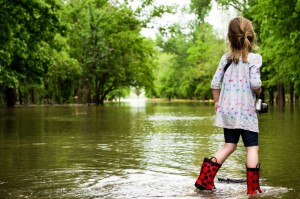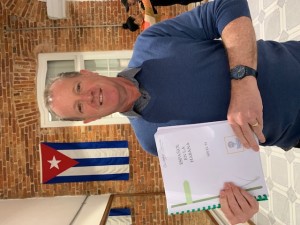 Our student Green Team volunteers and a handful of other students are LCC’s “eco-warriors” who are active in considering new ways to educate, support, and advocate for our environment. Despite their efforts and a strong commitment from school administration, I am still concerned about awareness and ownership of environmental issues across our broader school community.
Our student Green Team volunteers and a handful of other students are LCC’s “eco-warriors” who are active in considering new ways to educate, support, and advocate for our environment. Despite their efforts and a strong commitment from school administration, I am still concerned about awareness and ownership of environmental issues across our broader school community.
I write this as thousands of people in our city are out of their homes due to catastrophic flooding. Two years ago, major floods were called “once-in-a-century floods”. Unfortunately, they happened again. It can be very tough for young people to process the many elements of climate change. Many people, young and old, think they can have little real impact. I believe that none of us should sit on the sidelines; we should all consider how we can play a part in protecting our environment.
LCC has taken a lot of steps in recent years, but we cannot rest on our laurels and should do more. These are some environmental initiatives undertaken at the school:
Between 2005 and 2010, we started a student Green Team, introduced recycling in a systematic way and addressed a number of costly campus infrastructure issues, replacing inefficient furnaces, ventilation systems and energy-wasting lighting. We also constructed Montreal’s most energy efficient arena in 2008, using an efficient ice-making system called ECO CHILL. That building is LEED Silver Certified (highly sustainable standards). In 2009, we made the environment one of the seven key pillars of our school’s Strategic Plan.
After 2010, our Board of Governors adopted and published a Sustainability Commitment, and we have continued to improve our facilities with sustainability and energy efficiency in mind. This was reflected in the renovation of our science wing in summer of 2010 and construction of the LEED Gold Certified Assaly Arts Centre in 2013. It has many sustainable attributes, including geothermal heating. During those years, an active staff Sustainability Committee and an LCC Parent Environmental Committee also worked on promoting sustainability practices in day-to-day school life.
We have replaced washroom taps with automatic units and installed low-flow urinals. We purchase only sustainably-sourced paper, introduced composting in our food service operations and LCC was twice named one of Canada’s Top 100 Green Employers. All along the way, teachers at all levels have considered ways to focus on the teaching and learning about the environment in our curriculum.
Beyond our committed eco-warriors, I still think we can do better by giving environmental education and sustainability a higher profile. In all fairness, many students and adults are not sure what they can do to help, either at school or at home.
Despite Canada’s small population and vast open spaces, we do not have an admirable track record on a host of environmental benchmarks. We are signatories to the 2015 Paris Accord on reducing harmful emissions, yet each Canadian produces 22 tonnes of greenhouse gas per year. That is the highest among all G20 countries and nearly three times the G20 average of eight tonnes per person.
I am pleased that the world has been effectively nudged by the work of many young environmental activists. Notably, 16-year-old Swedish Nobel nominee Greta Thunberg has presented a powerful call-to-action to youth globally. Her message and her passion for this cause are impressive. She reminds all adults that in many ways we have failed this young generation, and now it is time to pull together and act on behalf of Mother Earth.
In an effort to raise the bar on environmental issues, LCC recently joined a new Environmental Steering Committee of a few CAIS schools. We are working together to set higher standards and benchmarks and hopefully impact all of our nearly 100 CAIS schools across the county.
I invite all students to sit up, listen and take notice. How do we share ideas for improvement within our school and with other CAIS schools? I asked them to channel their thoughts through our advisory groups, Green Team or Student Council. Most importantly, let’s consider how we translate our ideas into action. This is a whole-school initiative that could have long-term impact.
To paraphrase American writer H. Jackson Brown from his NYT bestseller Life’s Little Instruction Book, 20 years from now our students will be more disappointed by the things that they didn’t do than by the ones they did. – Christopher Shannon (Pre-U ’76), Headmaster
 I’m now halfway through a three-week course in Spanish in Havana, trying to awaken long-dormant Spanish vocabulary and grammar first learned years ago in high school. Sitting in a class has been both challenging and refreshing. It gives me great respect for what all of our LCC students do daily and it is a reminder that deep learning of new material is a lot of effort — it’s hard!
I’m now halfway through a three-week course in Spanish in Havana, trying to awaken long-dormant Spanish vocabulary and grammar first learned years ago in high school. Sitting in a class has been both challenging and refreshing. It gives me great respect for what all of our LCC students do daily and it is a reminder that deep learning of new material is a lot of effort — it’s hard!
 For 110 years we have operated as a school focused on the teaching of and adherence to values. They’re important in defining high standards, in promoting our students’ character development, and the creation of responsible citizens who are essentially good people. At the end of last year, we adopted six core values that we feel we should really stress here at LCC in all that we do. They’re foundations for our entire learning community. Not just students – faculty, staff, parents, alumni also.
For 110 years we have operated as a school focused on the teaching of and adherence to values. They’re important in defining high standards, in promoting our students’ character development, and the creation of responsible citizens who are essentially good people. At the end of last year, we adopted six core values that we feel we should really stress here at LCC in all that we do. They’re foundations for our entire learning community. Not just students – faculty, staff, parents, alumni also. As we begin a new school year, I think that most students are excited about an array of opportunities, but a lot are also naturally feeling somewhat vulnerable. A major contradiction of our times is the unintended message of the nuts-and-bolts priorities of the “I generation”. I hear a lot about “I this” and “I that”. Let’s face it, across North America there’s an obsession with the individual and with individual public displays of personal competence and strength. Although there’s nothing wrong with strength, courage and developing into a solid individual, none of our students are able to do it alone, I assure you.
As we begin a new school year, I think that most students are excited about an array of opportunities, but a lot are also naturally feeling somewhat vulnerable. A major contradiction of our times is the unintended message of the nuts-and-bolts priorities of the “I generation”. I hear a lot about “I this” and “I that”. Let’s face it, across North America there’s an obsession with the individual and with individual public displays of personal competence and strength. Although there’s nothing wrong with strength, courage and developing into a solid individual, none of our students are able to do it alone, I assure you. Our student Green Team volunteers and a handful of other students are LCC’s “eco-warriors” who are active in considering new ways to educate, support, and advocate for our environment. Despite their efforts and a strong commitment from school administration, I am still concerned about awareness and ownership of environmental issues across our broader school community.
Our student Green Team volunteers and a handful of other students are LCC’s “eco-warriors” who are active in considering new ways to educate, support, and advocate for our environment. Despite their efforts and a strong commitment from school administration, I am still concerned about awareness and ownership of environmental issues across our broader school community. Although this has been a very challenging winter with radical temperature shifts, last summer was the hottest on record in Montreal. Montreal is a city of extremes, shifting from as low as -40°C to +40°C, a major differential and one of the most significant temperature shifts in the world. No wonder our roads are so bumpy with a long cycle of freezing, thawing, and freezing again.
Although this has been a very challenging winter with radical temperature shifts, last summer was the hottest on record in Montreal. Montreal is a city of extremes, shifting from as low as -40°C to +40°C, a major differential and one of the most significant temperature shifts in the world. No wonder our roads are so bumpy with a long cycle of freezing, thawing, and freezing again.